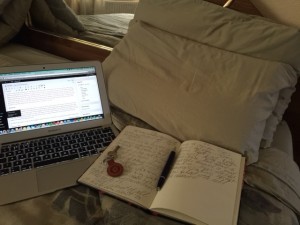 I’m an obsessive person. Most writers are and often to the detriment of their health. For most writers I know, balanced is not their natural state. For many of us complete and total tunnel-visioned obsession is more the norm. After coming off a very challenging year in which I’ve been forced to find a more balanced way to live, I’ve discovered that while balanced may not be my natural, writerly state, the more balanced my life is, the better I write, and the more productive I am. As counterintuitive as it sounds, I’ve discovered that for me to be the best writer I can be, there are some non-writing things that I need to incorporate into my routine. Every writer has a different list, I’m sure, but these are my top five.
I’m an obsessive person. Most writers are and often to the detriment of their health. For most writers I know, balanced is not their natural state. For many of us complete and total tunnel-visioned obsession is more the norm. After coming off a very challenging year in which I’ve been forced to find a more balanced way to live, I’ve discovered that while balanced may not be my natural, writerly state, the more balanced my life is, the better I write, and the more productive I am. As counterintuitive as it sounds, I’ve discovered that for me to be the best writer I can be, there are some non-writing things that I need to incorporate into my routine. Every writer has a different list, I’m sure, but these are my top five.
Read More for Pleasure. Okay, we writers all know that reading is a great way to improve our 
writing, and I would be the first to give a hearty nod to reading in order to write better. BUT this is not that! This has nothing to do with anything but enjoying yourself. It doesn’t matter what you read, read it for pleasure, read it with your feet up and a nice hot cuppa or a good glass of wine at hand; read it while munching some seriously decadent chocolate. Read it in a boat. Read it with a goat. Read it greedily and obsessively and leisurely, and totally and completely do it for the sheer delight of it. You won’t regret it.
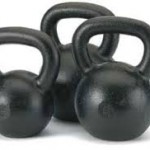 Be More Physical. We writers tend to forget that beyond the fabulous world where our imagination meets the written word, beyond the characters with which we eat, breathe, and sleep 24/7, beyond the WIP and the plot problems solved and the scenes unfolding in our head, we are flesh and blood. We’re often flesh and blood with carpal tunnel, stiff necks, horrible posture and bad backs because about as physical as we get when we’re on a roll, when the Muse is with us, when we’re chasing a deadline, is to move our fingers across the keyboard at blinding speed. Physical bodies were meant to be … well … physical. It doesn’t matter so much what we do, but that we move – pilates, zumba, kettle bells, dance, walk, run, bike, row, swim, but move! It can hardly come as a surprise to learn that the Muse likes a fit body as much as we like to write about one.
Be More Physical. We writers tend to forget that beyond the fabulous world where our imagination meets the written word, beyond the characters with which we eat, breathe, and sleep 24/7, beyond the WIP and the plot problems solved and the scenes unfolding in our head, we are flesh and blood. We’re often flesh and blood with carpal tunnel, stiff necks, horrible posture and bad backs because about as physical as we get when we’re on a roll, when the Muse is with us, when we’re chasing a deadline, is to move our fingers across the keyboard at blinding speed. Physical bodies were meant to be … well … physical. It doesn’t matter so much what we do, but that we move – pilates, zumba, kettle bells, dance, walk, run, bike, row, swim, but move! It can hardly come as a surprise to learn that the Muse likes a fit body as much as we like to write about one.
Eat Better: Never mind the notorious one-handed read, most writers could tell you a thing or two  about the one-handed write. It happens when we’re in the zone, in happens when we’re facing a deadline. We manage the keyboard with one had while we shove something quick and dirty into our
about the one-handed write. It happens when we’re in the zone, in happens when we’re facing a deadline. We manage the keyboard with one had while we shove something quick and dirty into our
mouths with the other – pizza, M&Ms, a bag of chips, cookies, donuts, any kind of take-out. We need to eat and we don’t want to take the time to do it properly. But a one-handed write doesn’t have to be an unhealthy one. We can make the choices good for us. It’s amazing how easily fruit lends itself to the one-handed write. I’m a notorious grape-popper. Or even better yet, I have been known from time to time to actually walk away, take a break, fix myself a real meal – something healthy. You’d be amazed how many yummy, healthy things you can fix for yourself in just a few minutes. There are a gazillion recipes out there all over the internet. AND, the great side effect is that when I give myself a break; I come back refreshed and more focused, and I actually write better.
Be Seen in Public: I tend to be a hermit whenever I can get away with it. I tend to be even more of a hermit when I’m chasing a deadline or when I’m in the zone with a new novel. But, we humans, even the  reclusive hermits among us, are social animals and being with other people feeds the Muse. Plus the occasional honing of social skills helps to insure that we don’t forget how to use them. The truth of the matter is that there’s nothing more inspiring than watching and listening to people. People are where the stories come from, and our stories are almost all about people! That being the case, it might be wise to spend some time with a few real ones and not just the imaginary ones in our heads.
reclusive hermits among us, are social animals and being with other people feeds the Muse. Plus the occasional honing of social skills helps to insure that we don’t forget how to use them. The truth of the matter is that there’s nothing more inspiring than watching and listening to people. People are where the stories come from, and our stories are almost all about people! That being the case, it might be wise to spend some time with a few real ones and not just the imaginary ones in our heads.
Pamper yourself: As often as I can, I try to do something for myself that’s deliciously decadent and  just flat out feels good – so good, in fact, that it makes me happy – possibly even makes me feel guilty for being so indulgent. What’s a writer without a little self-imposed guilt? I love long baths with nice bubbles. I love to read in bed – there, you see, I’m actually multi-tasking when I do that. It helps assuage the guilt J What are your guilty pleasures? Be sure to indulge in them regularly. They’re good for your writing. Your Muse will be pleased.
just flat out feels good – so good, in fact, that it makes me happy – possibly even makes me feel guilty for being so indulgent. What’s a writer without a little self-imposed guilt? I love long baths with nice bubbles. I love to read in bed – there, you see, I’m actually multi-tasking when I do that. It helps assuage the guilt J What are your guilty pleasures? Be sure to indulge in them regularly. They’re good for your writing. Your Muse will be pleased.
I’ve discovered that good writing involves more than just writing. Good writing often involves not writing at all. But as all writers know, even when we’re not writing, we’re still writing, so lets practice a little self-indulgent, decadent, pleasurable, physical, fun non-writing from time to time. Our Muse will be glad we did.
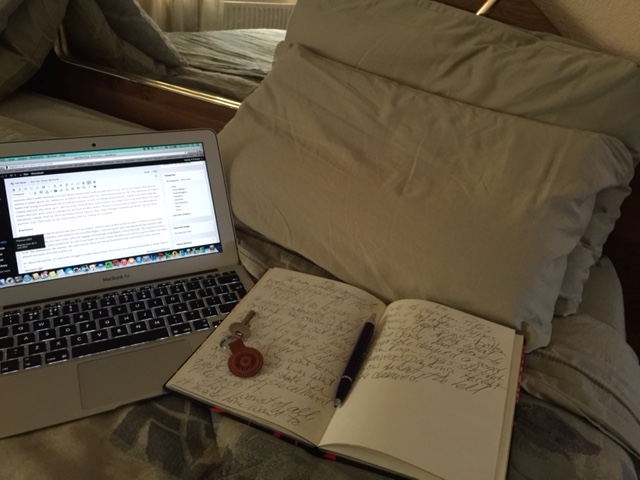 As a writer of erotic romance, I’m always trying to analyze the ways in which sex strengthens story. I’ve
As a writer of erotic romance, I’m always trying to analyze the ways in which sex strengthens story. I’ve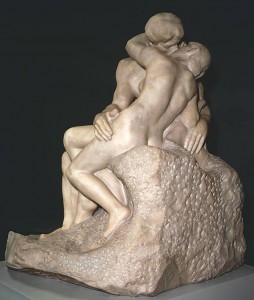
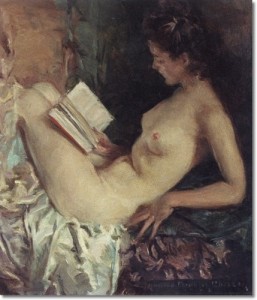
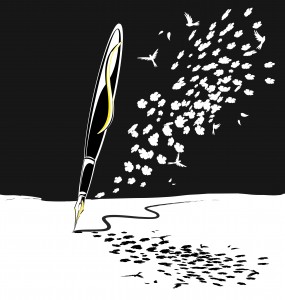 (From the Archives)
(From the Archives)
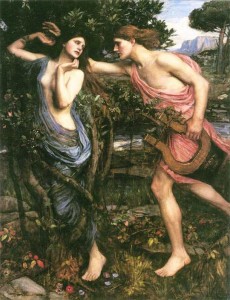 just how much fun it is to write the baddies. In The Flesh is based on a very creepy short story I wrote a long time ago, a short story whose baddie didn’t even have a name. His lover thought he might actually be god! The idea of having a god for a lover, having a lover who is more than human and at the same time way less than human, who like the gods of mythology, considers himself above human law and ethics, never stops intriguing me. I revisited the idea in the
just how much fun it is to write the baddies. In The Flesh is based on a very creepy short story I wrote a long time ago, a short story whose baddie didn’t even have a name. His lover thought he might actually be god! The idea of having a god for a lover, having a lover who is more than human and at the same time way less than human, who like the gods of mythology, considers himself above human law and ethics, never stops intriguing me. I revisited the idea in the 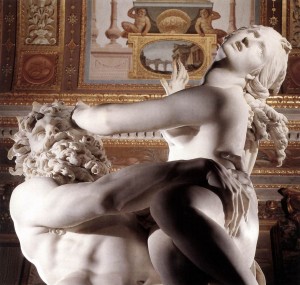 I think the baddie has to do more than just make the hero shine. He also has to hold up the mirror that reflects back the hero’s own dark side. He has to elicit more than hate from the reader and the other characters. I think for a baddie to really make a plot sing, he has to elicit our own dark lusts and our own voyeuristic walk on the wild side. The baddie attracts us because he’s brave enough, bold enough, not to
I think the baddie has to do more than just make the hero shine. He also has to hold up the mirror that reflects back the hero’s own dark side. He has to elicit more than hate from the reader and the other characters. I think for a baddie to really make a plot sing, he has to elicit our own dark lusts and our own voyeuristic walk on the wild side. The baddie attracts us because he’s brave enough, bold enough, not to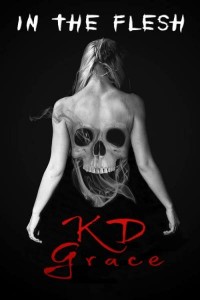 to spark against, the baddie is there to help the reader get a better picture of who the hero and heroine are. And the baddie is the knife and chisel that sculpts the hero and heroine into something better, something stronger.
to spark against, the baddie is there to help the reader get a better picture of who the hero and heroine are. And the baddie is the knife and chisel that sculpts the hero and heroine into something better, something stronger.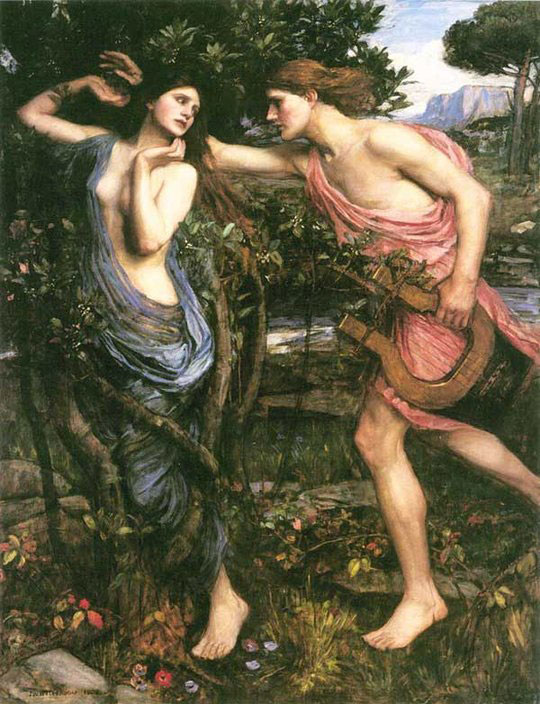 Most of you know that every Friday for the past six months I’ve been putting out a weekly episode of a novel in serial form on my blog. And of course, I’m hoping you all know that because you’re following
Most of you know that every Friday for the past six months I’ve been putting out a weekly episode of a novel in serial form on my blog. And of course, I’m hoping you all know that because you’re following 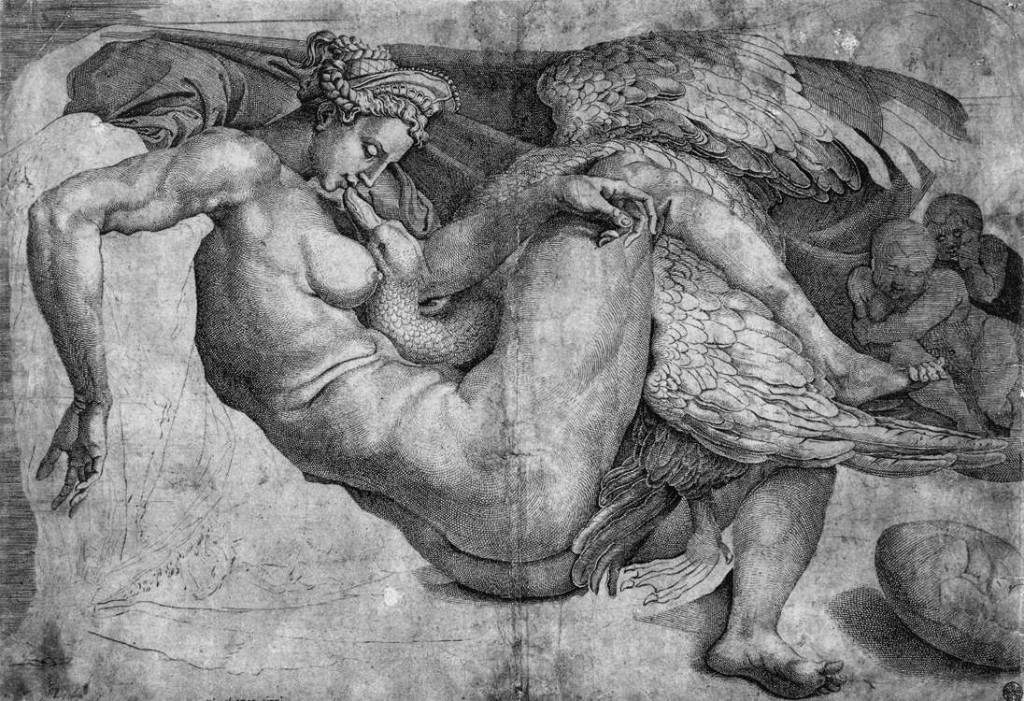 Sex is a power centre of the human experience. It’s not stable. It’s not safe. It’s volatile. It exposes people,
Sex is a power centre of the human experience. It’s not stable. It’s not safe. It’s volatile. It exposes people,